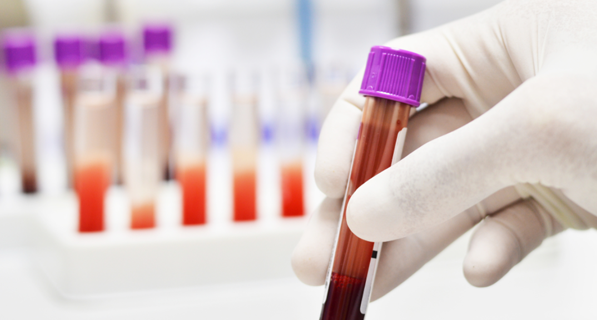Before we reveal the most common blood type, let’s explore some fascinating facts about blood.
When it comes to blood types, seeing the words “antigen” and “Rh factor” probably take you back to high school biology, but how’s an average Joe or Jane supposed to make sense of all this science-y stuff?
Let’s break it down. Blood types are determined by two things: Yup, you guessed it, antigens and the mysterious Rh factor. (Knowing your Rh factor is especially important during pregnancy, by the way. Learn why.)
Antigens are surface proteins found on red blood cells. But the plot thickens, because next comes the Rh factor — short for rhesus, in case you were wondering. If your blood has the Rh factor, you’re Rh positive; if your blood lacks the Rh factor, you’re Rh negative. Pretty easy, right? Coupled with humans’ collective knowledge of antigens, this has allowed scientists to classify blood groups as one of eight types for over a century:
- Type A+
- Type A-
- Type B+
- Type B-
- Type AB+
- Type AB-
- Type O+
- Type O-
The most common of these eight is O-positive, found in roughly 40% of the U.S. blood donor population. Type O-positive blood can be given to a patient with any positive blood type, and is also considered the most needed blood type around. That means it can be given to over 85% of patients who need a blood transfusion. Type O-positive is the second most transfused blood type among hospital patients, making it a pretty powerful tool for saving lives!
Something to keep in mind: Platelet donations work a little differently than a traditional whole blood donation and can help patients regardless of what blood type you have. When you show up to donate, a special machine removes your platelets and returns the other blood components (plasma, red cells and white cells) back to you, safely and comfortably. Find out more about platelet donations and why they’re so important.
What’s this “universal blood type” business I keep hearing about?
Whenever someone says “universal blood type,” they’re referring to type O-negative.
Interestingly, what makes this blood type special isn’t what it has, but what it doesn’t — O-negative is the only blood type without antigens or Rh factor, which allows it to be safely transfused to any person — even when a patient’s blood type is unknown. And now you know how O-negative got its cool nickname.
Doctors always reach for this blood type first during life-threatening medical emergencies, especially when the matching blood type isn’t readily available. There’s simply no better option.
Why can’t doctors just give patients whatever blood type they have on hand to save time?
This would not end well for anyone. Our immune system is made up of fierce warriors that defend our bodies against the forces of evil (bad bacteria and viruses, mostly). If someone were to receive an incompatible blood type, their body would flag the antigen as a potential threat and attempt to destroy it. Think of it like a civil war breaking out inside your body. This could be potentially fatal, and while it’s a scary hypothetical, hospital staff are well-trained to prevent such a scenario from happening.
How can I help patients when I don’t even know my own blood type?
Don’t worry — the two aren’t mutually exclusive. If you don’t know your blood type, not only can you still donate blood, you’ll find out after you donate. Just make an appointment, show up and ask your donor care specialist. It’s that easy!
One in every 7 people entering a hospital will need blood, and patients need you now.
Start saving lives by scheduling your blood donation today.

